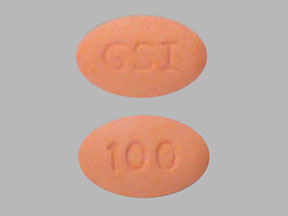Idelalisib and Alcohol/Food Interactions
There is 1 alcohol/food/lifestyle interaction with idelalisib.
Alcohol (Ethanol) Idelalisib
Moderate Drug Interaction
Idelalisib may cause serious and life-threatening liver problems, and using it with other medications that can also affect the liver such as ethanol (alcohol) may increase that risk. You should avoid or limit the use of alcohol while being treated with these medications. Talk to your doctor if you have any questions or concerns. Your doctor may already be aware of the risks, but has determined that this is the best course of treatment for you and has taken appropriate precautions and is monitoring you closely for any potential complications. Call your doctor immediately if you have fever, chills, joint pain or swelling, unusual bleeding or bruising, skin rash, itching, loss of appetite, fatigue, nausea, vomiting, abdominal pain, dark urine, pale stools, and/or yellowing of the skin or eyes, as these may be signs and symptoms of liver damage. You may need a dose adjustment or an interruption in idelalisib therapy if you develop severe liver problems. It is important to tell your doctor about all other medications you use, including vitamins and herbs. Do not stop using any medications without first talking to your doctor.
Switch to professional interaction data
Idelalisib drug interactions
There are 906 drug interactions with idelalisib.
Idelalisib disease interactions
There are 7 disease interactions with idelalisib which include:
- colitis
- dermatologic toxicities
- hepatic impairment
- infections
- intestinal perforation
- neutropenia
- lung toxicity
More about idelalisib
- idelalisib consumer information
- Check interactions
- Compare alternatives
- Reviews (2)
- Side effects
- Dosage information
- During pregnancy
- Drug class: PI3K inhibitors
- Breastfeeding
- En español
Related treatment guides
Drug Interaction Classification
| Highly clinically significant. Avoid combinations; the risk of the interaction outweighs the benefit. | |
| Moderately clinically significant. Usually avoid combinations; use it only under special circumstances. | |
| Minimally clinically significant. Minimize risk; assess risk and consider an alternative drug, take steps to circumvent the interaction risk and/or institute a monitoring plan. | |
| No interaction information available. |
See also:
Further information
Always consult your healthcare provider to ensure the information displayed on this page applies to your personal circumstances.


